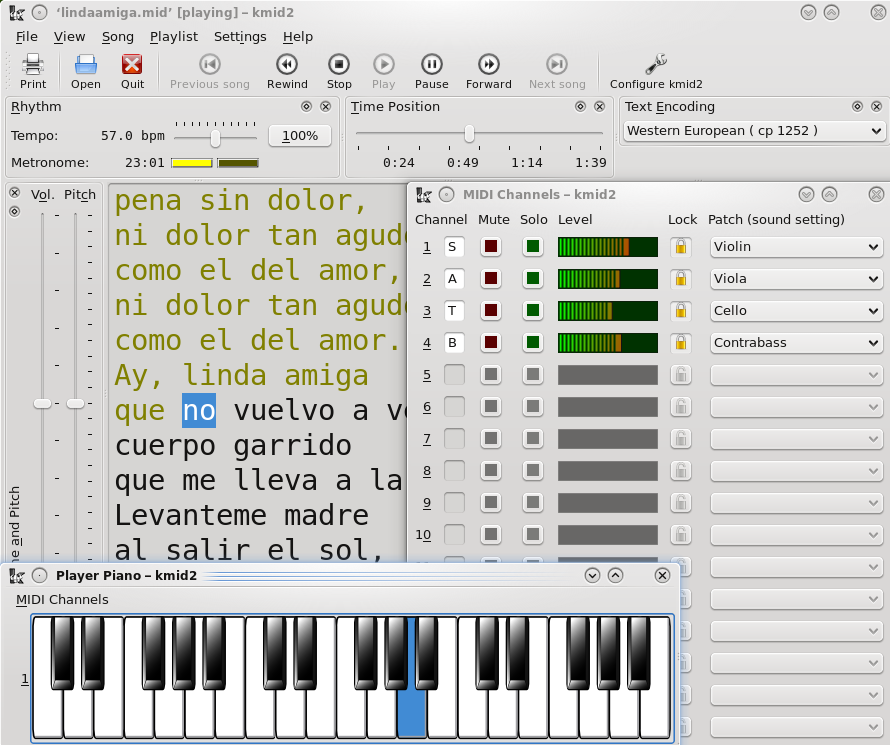D
Deleted member 67862
Guest
Greetings fellow Beastie followers,
I want to integrate MIDI into the sound system for my desktop environment. The settings allow me to select a MIDI device and I usually used audio/timidity++ as an auto-starting daemon on Linux systems to get this functionality, but I can't figure out how to launch timidity++ as a daemon on FreeBSD. I believe on Linux the command used is
I simply can't get it to launch as a daemon and work. The man page is very hard to read, but
None of these interfaces are close to what I'm looking for. Is it even possible to use timidity++ as a daemon for OSS and if so, how? I'd love to find at least some kind of midi mapper daemon that will work with the native sound system. Thanks.
I want to integrate MIDI into the sound system for my desktop environment. The settings allow me to select a MIDI device and I usually used audio/timidity++ as an auto-starting daemon on Linux systems to get this functionality, but I can't figure out how to launch timidity++ as a daemon on FreeBSD. I believe on Linux the command used is
timidity -iA but I use FreeBSD's native sound so no ALSA (which this flag uses). I've tested timidity++ and it works just fine on its own, I have it mapped to an .sf2 file from audio/fluid-soundfont. I simply can't get it to launch as a daemon and work. The man page is very hard to read, but
timidity -h has the following:
Code:
Available interfaces (-i, --interface option):
-in ncurses interface
-iT vt100 interface
-id dumb interface
-ir remote interfaceNone of these interfaces are close to what I'm looking for. Is it even possible to use timidity++ as a daemon for OSS and if so, how? I'd love to find at least some kind of midi mapper daemon that will work with the native sound system. Thanks.



